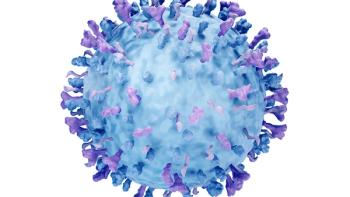
- BioPharm International-08-01-2007
- Volume 20
- Issue 8
From the Editor: After Zheng
The corruption of China's food and drug sectors is not limited to one man. Likewise, real reform will require the efforts of many.
The execution of Zheng Xiaoyu, the corrupt head of China's State Food and Drug Administration, was a shock. Just weeks earlier, in writing for our July issue about the diethylene glycol contamination of excipients produced in China, I said the Chinese government's response to several related cases had ranged from "obstructive to inadequate." For example, Chinese officials declared that the deadly chemical was not toxic and was therefore permitted to be used as an ingredient in toothpaste. That they should turn suddenly to crack down so severely on their agency's corruption was, therefore, unexpected.
Laura Bush
What Zheng did was itself shocking. In a country where the average worker earns about $2,000 a year, Zheng accepted bribes totalling more than $850,000. In return, he approved thousands of untested medications. All told, the agency approved 150,000 drugs under Zheng's tenure. (In a typical year, the US FDA approves fewer than 150). As a result of those approvals of fraudulent drugs, countless Chinese patients died or became seriously ill.
And all this happened on the watch of a man who started his career as a reformer. A recent New York Times article chronicles Zheng as an idealistic young man who eventually pushed for the creation of a federal food and drug oversight body, of which he became the director in 1998. He established good manufacturing standards and began to shut down companies that did not meet them. But at some point, Zheng changed. The cause remains a mystery. Was he overwhelmed by a system that is corrupt on many levels? Or was it just simple human greed?
If what happened to Zheng personally is impossible to ascertain, interpreting the government response is not much easier. It may have been only a symbolic move intended to show Western countries that China is serious about meeting international quality standards, following a series of recent contamination cases involving cough syrup, toothpaste, pet food, and seafood—all from China.
Perhaps the government was trying to send a signal domestically indicating that the pharmaceutical industry truly is going to have to clean up its act. Because clearly, the corruption of China's food and drug sectors is not limited to one man. It occurs at many levels, including the powerful regional politicians who defend companies in their areas against federal policy enforcement.
Likewise, real reform will require the efforts of many. It will take courageous reformers willing to put themselves on the line to speak the truth. It will take external pressure, both moral and economic, from foreign trading partners and even consumers, unwilling to overlook unscrupulous practices or accept poor quality goods in the realization that inexpensive is not always a bargain. And it will require significant political will in China to truly work toward change, including shifting the balance of power between the local and national levels.
After Zheng, the question that lingers is whether China is indeed on the path to reforming its pharmaceutical sector. I hope so. But only time will tell.
Laura Bush is the editor in chief of BioPharm International,
Articles in this issue
over 18 years ago
Process Development: Think Like a Scientist—Behave Like a Businessover 18 years ago
Street Talk: Small-Cap Biopharmaceutical Stocksover 18 years ago
Biotech Manufacturers Face Competition from "Similar" Follow-Onsover 18 years ago
Drug Delivery: What The Future Holdsover 18 years ago
Final Word: The Case for Flexible Manufacturing Capacityover 18 years ago
China Today: Biopharmaceutical Exportsover 18 years ago
Patents: Patent Strategies for Biotechnology EnterprisesNewsletter
Stay at the forefront of biopharmaceutical innovation—subscribe to BioPharm International for expert insights on drug development, manufacturing, compliance, and more.




